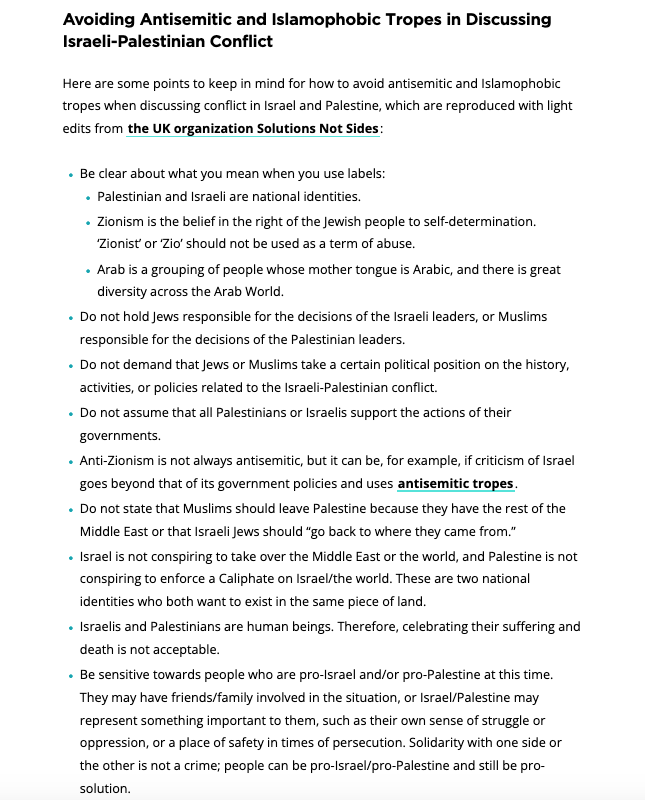Finds for Writers

Most Fridays the Practicing Writing blog shares writing and publishing resources, news, and reflections to peruse over the weekend. But it’s been an excruciating week for so many of us. And frankly, I’ve paid next-to-no attention to garden-variety news from the writing and publishing spheres.
On Wednesday, however, I received an email from Facing History and Ourselves, a Boston-based global nonprofit organization that I’ve admired for many years. The email introduced a “mini-lesson” titled “Processing Attacks in Israel and the Outbreak of War in the Region.”
The resource isn’t perfect. (What resource is?) But one of its segments impressed me as something that, though intended for educators and students, could be clarifying for writers as well, in our work and in the rest of our lives. It’s a section titled “Avoiding Antisemitic and Islamophobic Tropes in Discussing Israeli-Palestinian Conflict.”

- Louise Glück is the latest Nobel literature laureate, and as usual, the Literary Saloon is curating the coverage.
- On the other hand, we can’t all be Nobel laureates. Katrin Schuman’s new piece on “being a ‘good enough’ writer” resonates with me. (Related: a piece from my archive.)
- Selected content from the new (November-December) issue of Poets & Writers magazine is available online.
- Over on Nieman Storyboard they’ve published “the first in an occasional series of posts that elaborate on some of the most basic weaknesses in story pitching.” Some good links/resources there, too.
- And yes, there’s a new set of Jewish Literary Links posted over on the My Machberet blog.
Have a great weekend, everyone.

Erika,
I enjoyed your own 2014 essay about fantasy and reality of being a writer much more than Katrin Schumann’s. Just sayin’.
Well, thank you, Barb.
What a wonderful essay you wrote about pursuing the MFA–poignant, mature, wise, generous.
Thank you for pointing to it.
Cezarija
Thank you so much. I appreciate that!
In most ways I am one of those “good enough” writers. I write the type of story I want to read. Which is usually some kind of adventure, not probing, only, the inner workings of the brain, or soul.
I don’t write “Literature,” either. I had way too much of it crammed down my throat in high school and college. “This is great prose, even if the story has zero plot.” “We must find the symbolism in everything this wonderful author mentions.” Subtext: I am going to change these kids’ lives by making them study, study, study lit. Who cares if they enjoy it.
Has anybody here ever read the poetry of Frederick Schiller Faust? Faust wanted to be remembered as a poet. The only things he ever put his own name on were two small books of his poems. To pay the bills he wrote popular fiction under nearly twenty pen-names, including Max Brand. Faust died as a war correspondent late in World War Two. Even today his stories are being resurrected from nearly century old pulp magazines for their “First Book Publication!”
These days, like Erika, I am taking advantage of the Internet and Print-On-Demand technologies to get my stories out there. I have been published by four Small/Micro publishers. I just released my third self-published book.
I am lucky to be writing today. I’ve been married 50 years to a woman who thinks I should not write because I don’t bring in Steven King style money. Back in the day she would never have put up with the garage being full of unsold self-published books.
Thanks so much for sharing those thoughts. (I must say that I’m not familiar at all with Faust/Brand.)
Erika,
Frederick Schiller Faust (May 29, 1892 – May 12, 1944) was an American author known primarily for his Western stories using the pseudonym Max Brand. He (as Max Brand) also created the popular fictional character of young medical intern Dr. James Kildare for a series of pulp fiction stories.
Max Brand and Zane Grey westerns were popular when I was a kid. They sold millions of copies after his death.
Oh, sure–Dr. Kildare and Zane Grey are familiar names!